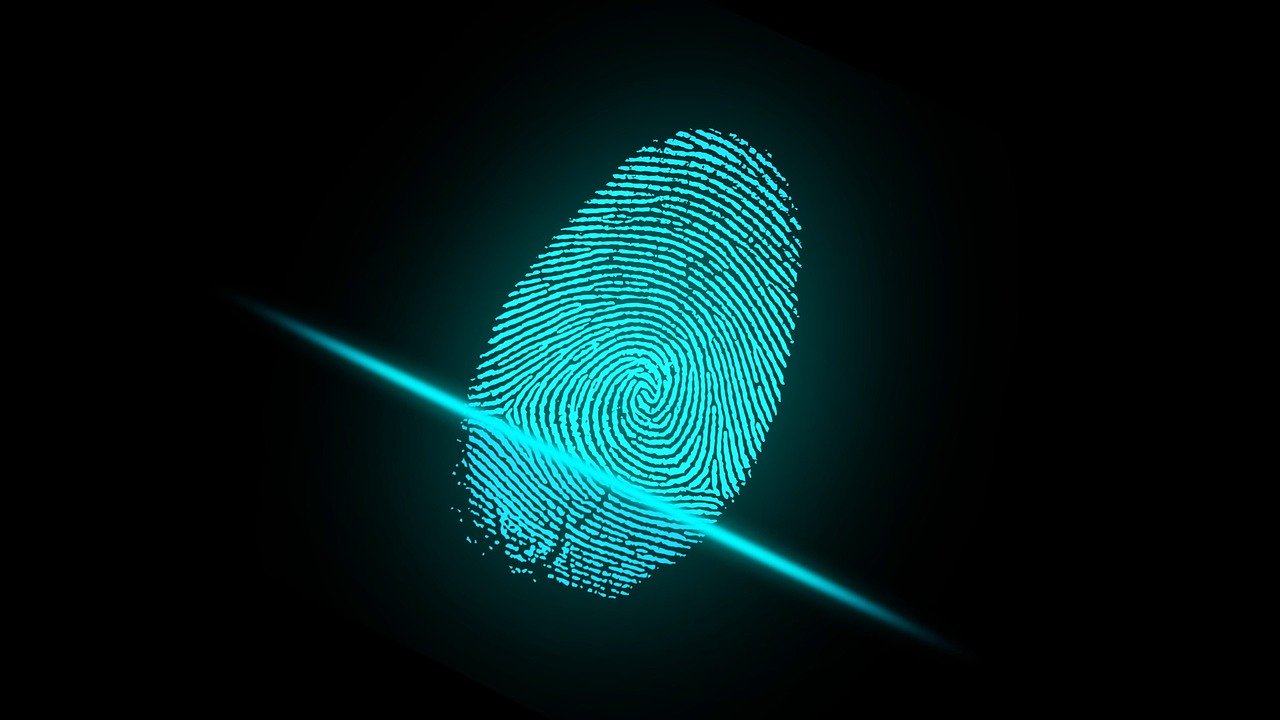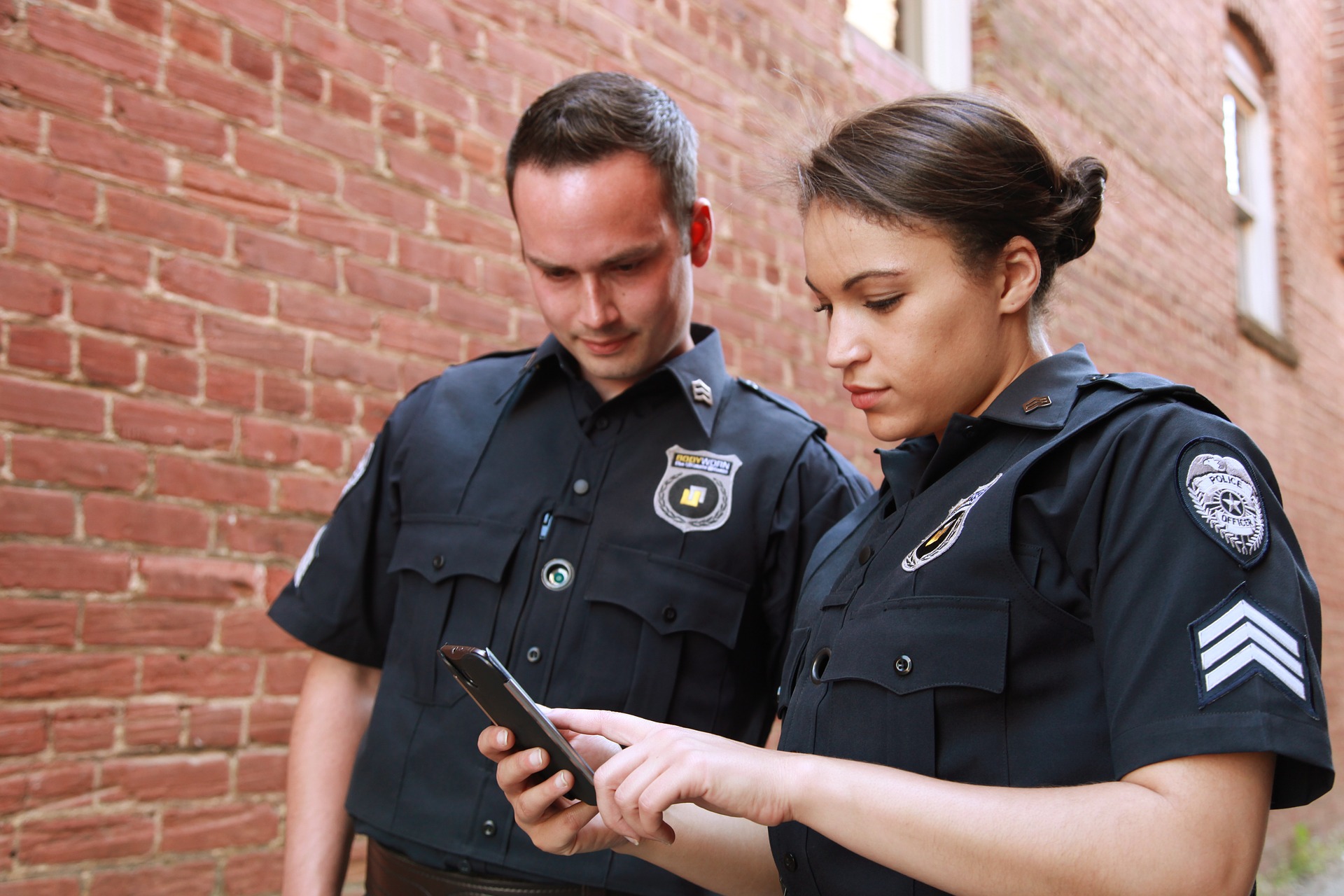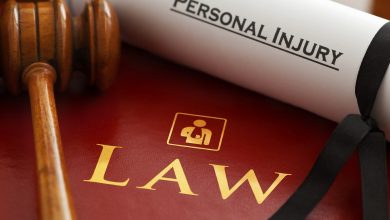Can Police Take Your Phone for Evidence Without a Warrant?

The United States Constitution was written in 1787, centuries before landline telephones and automobiles became wide spread. Needless to say, with the rise of the internet and smartphone devices, many people are confused about how their legal rights apply in the digital age. Because of that, this article will answer the following questions: Can police take your phone without a warrant? Can cops search your phone when they arrest you? And, equally as important, can police take your phone for evidence if it’s locked?
Your constitutional rights certainly apply to mobile and laptop devices. Recent court ruling reinforced this. Yet there are still a lot of questions about the application of the Fourth and Fifth Amendment in the digital age.
Before preparing a defense, felons must know their legal history, how the cops obtain a warrant, and if there are certain exceptions that allow them to search your device for evidence without one.
Can Police Take Your Phone Without a Warrant?
Understanding your digital privacy rights and what law enforcement can/can’t do revolves around a few key concepts.
- The Fourth Amendment: The United States Constitution protects your right to privacy. More specifically, the Fourth Amendment stresses that the government needs to get a warrant before searching your home, property, and other belongings (including a phone).
- Search Warrant: If the courts issue a search warrant, police can take your phone and go through it. However, the warrant must specifically say that they have the permission to do so. For example, a search warrant on your home may not allow law enforcement to go through other items.
- Probable Cause: In order for a judge to issue a warrant, the police must provide them with sufficient information. These details have to prove that a suspect committed a crime. At times, if a police officer has probable cause, they could arrest someone and search their belongings without a warrant.
- The Fifth Amendment: This constitutional right enables defendants to avoid giving away information about themselves that proves illegal wrongdoing. When it comes to electronics, the Fifth Amendment protects you from having to give the police your locked phone’s pin, email/social media passwords, and other similar details.
- Digital Evidence: Because online proof, such as text messages and chatrooms, is different than physical evidence, certain rules may apply. For example, if law enforcement suspects that someone is going to delete digital evidence, they can search a phone or computer without a warrant. Keep in mind, it is much easier to hide or destroy online proof than physical evidence.
- Types of Searches: In certain cases, the law treats a physical search of your phone (such as removing the battery) differently than a content investigation (i.e. looking at text messages).
Privacy Rights, History, and Digitalization
When the Founding Fathers drafted the Constitution, they included the Fourth Amendment to ensure that the government cannot infringe on people’s rights. Beforehand, British colonists could search individuals’ private belongings very easily.
Similarly, the Fifth Amendment guarantees that you don’t have to give away information that could criminalize you. When the police tell defendants that they have “the right to remain silent,” they’re partially talking about the Fifth Amendment.
The Fourth: When Can Police Take Your Phone Without a Warrant?
The original text of the Fourth Amendment protects your “persons, houses, papers, and effects” from an unwarranted search. However, as time went by and technology became more advanced, courts evolved their interpretation of this.
During the first half of the 20th century, the United States Supreme Court (USSC) held that privacy rights only applied to physical belongings. In other words, law enforcement don’t need a warrant to spy on someone’s phone calls.
Yet in 1967, the Katz v. United States case changed that. Firstly, the Federal Bureau of Investigation (FBI) monitored a public phone. After that, Charles Katz used the booth to place bets on sports games, without knowing that the FBI was recording his conversation.
Katz was also breaking certain gambling laws. As a result of the recorded phone calls, the FBI knew about Katz’s illegal activities. Subsequently, they brought charges against him.
The USSC, nonetheless, ruled in Katz’s favor. This is because the FBI violated his Fourth Amendment rights. More specifically, the court held that private conversations, even if they were conducted in public (i.e. the phone booth), are protected by privacy laws.
Today, with the rise of internet technology, many Fourth Amendment rights apply to email records, phone calls, and other forms of digital content. The USSC’s ruling on Katz vs. United States paved the way for this.
The Fifth: Can Police Take Your Phone for Evidence if You Refuse to Unlock It?
Recently, a California court ruled that forcing someone to unlock their phones violates the Fifth Amendment. This right extends to finger print and biometric-locked devices.

Even if the police can scan your fingerprints after making an arrest, they are only allowed to do so for jail-processing purposes. Otherwise, law enforcement can’t require you to use your fingerprints to unlock your device.
So Can Cops Search Your Phone Without a Warrant?
Generally speaking, the answer is no. However, just as with any other law, there are always going to be exceptions. We will outline them shortly, but a major factor that determines whether or not cops can search your phone is consent.
If you voluntarily agree to let the police go through your smartphone or laptop, they don’t need a warrant. In fact, your consent may even apply to future, unannounced searches, and not just the specific incident or time where you agreed.
Otherwise, here are some major exceptions that you should know about.
Exceptions: When Can Police Take Your Phone for Evidence Without a Warrant?
Location, Location, Location
The Fourth Amendment doesn’t protect felons and violators who get arrested or searched in certain places. Your privacy rights in public schools, airports, border crossing points, and automobiles follow a specific set of rules.
Firstly, the law treats public schools differently than private ones. This is because the teachers in a federal or state facility are government employees. To clarify, the Fourth Amendment mostly concerns searches by governmental workers or agencies, as opposed to private parties.
Having said that, public school teachers and principals have more flexibility than law enforcement officers when it comes to who/what they can search. While the latter must obtain a warrant and demonstrate probable cause, school officials don’t need to do so.
Instead, if they suspect that a student is hiding drugs or committing other legal violations, teachers and principals may search their belongings. This doesn’t just include bag packs and clothing, but it also extends to cell phones.
If the school official finds evidence of wrongdoing on a mobile device or laptop, they can immediately seize it and hand it over to the police. In turn, law enforcement officers can prosecute the defendant on that basis. To clarify, the cops don’t need to obtain a warrant.
Similarly, Customs and Boarder Patrol (CBP) may also seize and search your phone without one. In fact, law enforcement enjoy even more flexibility than public school teachers at the border and airport checkpoints.
Nonetheless, some states still require CBP to obtain a warrant or demonstrate probable cause to search someone’s electronics. This includes airports and international borderlines in Alaska, Arizona, California, Hawaii, Idaho, Montana, and Washington State, amongst others.
The Automobile Exception: When Can Cops Search Your Phone for Evidence Without a Warrant?
Lastly, the ‘automobile exception’ allows law enforcement to search your phone without a warrant if they find it in your car. In fact, they may also go through other belongings in a vehicle, such as the glove box, a wallet, or a backpack/purse.
For example, if the police pull someone over because they were intoxicated or driving a stolen car, the ‘automobile exception’ would apply.
That is not to say, however, that they may also search your home or property without a warrant. This is the case even if your phone or laptop was inside the house. The exception only applies to cars.
Can Police Take Your Phone Without a Warrant If Someone Else Had It?
Previously, we explained how giving consent allows law enforcement to seize and search your smartphone.
Yet what happens if someone else, such as a spouse or roommate, had your phone and agreed to give it to the police?
In this case, the law would still consider it consent. If an officer knocks on your door and your husband/wife, sibling, or roommate hands them your phone, they may go through it without a warrant.
Moreover, if two people had possession of the phone, such as yourself and a roommate, and the other person agrees to hand it over, the police could remove the non-consenting individual and take the device.
Can Police Take Your Phone for Evidence If It was Stolen?
Let’s assume that a drug dealer’s mobile device was stolen by one of their cohorts. A few weeks later, the cops arrest the thief and discover that the smartphone belongs to someone else.
If this happens, can they still search it? The answer is certainly yes. Firstly, the police need to identify who the device belongs to/was stolen from. Doing so requires them to go through data, images, and other details.
Secondly, when they discover any wrongdoing or illegal acts after searching the phone, law enforcement can arrest the suspect.
Going back to the drug dealer example, the police will likely find text messages between the seller and the buyers. They could also see pictures of the suspect while they were consuming drugs.
The courts will accept all of this content as evidence, even if the police obtained it without a warrant. After all, they originally found it on a stolen device.
Warrants, Incarceration, and Your Rights
Can Police Take Your Phone for Evidence If They Arrest You?
Even when law enforcement take someone into custody, they still need a warrant to go through their phone’s data.
The law allows them to physically inspect it, such as by removing the battery or cover, but they can’t access its content (i.e. text messages, photos, …etc.).

There are, nonetheless, certain exceptions. For example, if law enforcement are arresting you and, while doing so, they find your computer screen or phone open on a page that contains illegal activity (such as child pornography or text messages about buying/selling drugs), they may seize it.
Can Cops Search Your Phone If They Have a Search Warrant on Your House?
No, they can’t. In general, warrants only apply to a specific item or type of property.
As an instance, a warrant to search a house doesn’t give law enforcement the right to look through your phone, computer, or vehicle. In fact, the warrant doesn’t apply to any personal belonging that isn’t specified by the court.
However, if they can clearly see illegal contents on an open laptop screen or a text conversation that is displayed in plain sight, the cops can search the devices.
Equally as important, some warrants give law enforcement permission to look for evidence that pertains to a specific crime, as opposed to allowing them to search a specific property or belonging.
Those cases extend to smartphones, computers, and any other device, as long as the cops have reasonable cause to believe that it contains proof of wrongdoing.
Destruction: Can Police Take Your Phone for Evidence If You Plan on Deleting It?
Another exception to the Fourth Amendment, particularly when it comes to digital content, is when the police think that crucial evidence on a device is going to be deleted.
To illustrate, let’s say that a group of pedophiles share child pornography online by using a fake account or username.
Subsequently, the cops arrests one of them, but they are worried that the other criminals can delete the online content and chat conversations on the account when they discover that their colleague is in jail.
At this point, a police officer doesn’t have time to obtain the warrant. Therefore, the law allows them to seize and search an electronic device if they are worried that the evidence is going to be destroyed or tampered with.
Can Cops Search Your Phone for Evidence If It’s Locked?
In short, no. Furthermore, your Fifth Amendment rights protect you from handing out self-incriminating information, which includes access to your phone.
To clarify, even if a police officer had a warrant and seized your device, the law doesn’t require you to unlock it for them.
Yet, having said that, many enforcement agencies have software that allows them to unlock pin or password protected smartphones. They may utilize this tool when they have an existing search warrant.
After that, whatever evidence they uncover can be used against you.
The Fourth, the Fifth, and Your Defense
Regardless of the type of felony or criminal charges that you are facing, there are certain legal protections that you can rely on.
Can Police Take Your Phone Without a Warrant and Use It for Evidence?
Firstly, the courts cannot accept any evidence if prosecutors obtained it without a warrant. For example, the cops arrest a suspected drug dealer and find text messages that prove that the person was selling illegal substances.
However, they got this information through a warranties search. As a result, the courts will not charge the defendant because the police violated their Fourth Amendment rights.
This argument is even stronger when the text messages are the only proof of wrongdoing. In other words, if the court’s decision was mainly based on improperly obtained evidence, then you can use the Fourth Amendment to defend yourself.
Yet when there is other proof against you, such as witness testimonies or public cameras that caught you in the illegal act, the story may be different. Since that evidence was collected without violating the Fourth Amendment, the court will likely still charge you.
Why? Because whether or not the police obtained the text messages is irrelevant to the judge’s decision. After all, there are still other forms of proof against you.
Can Cops Search Your Phone With an Expired Warrant?
Secondly, even if police officers had a warrant, it is important to pay attention to what they could search and when the document expires. A warrant to look through your home can’t justify access to your smartphone or laptop (except in certain cases, which we outlined above).
Additionally, search warrants are only valid for a certain amount of time. After that, law enforcement must get another one. Otherwise, they can’t seize or investigate your property or devices.
Can Police Take Your Phone for Evidence After They Coerce You to Unlock It?
Thirdly, the police cannot force you to unlock your phone or laptop. If they do, you can use that as a defense because the officers violated your Fifth Amendment rights.
Your Digital Rights
Even though many laws haven’t caught up with technology, the Fourth and Fifth Amendment certainly did.
Under the former, police officers cannot search your electronics unless a court gives them permission (through a warrant). They must also show probable cause that you are guilty of a felony or a crime.

Equally as important, the Fifth Amendment allows you to avoid giving cops any online account passwords or the pin to unlock your phone.
Every felony case, in its nature, is complicated. Your personal circumstances also determine the best defenses that you could use in court.
Lastly, some currently housed inmates may want a judge to reduce their sentence. Others, if they have a strong defense, may seek to have all charges against them dropped.
At the end of the day, however, the Fourth and Fifth Amendments offer the same rights and protections to all individuals. This certainly extends to smartphones and computers.



